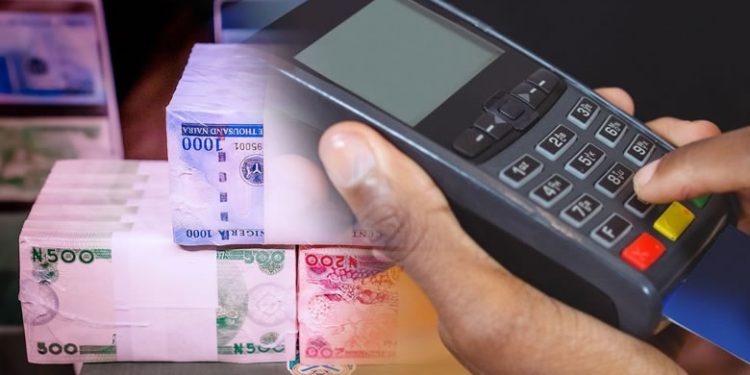Point of Sales (PoS) operators in Nigeria have been ordered by the Federal government to register with the Corporate Affairs Commission (CAC) as part of plans to improve transparency and reduce fraud.
The Federal Government through the Corporate Affairs Commission went on to issue a two-month registration deadline to the PoS companies and they’re to register their agents, merchants, and individuals with the commission in line with legal requirements and the directives of the Central Bank of Nigeria.
READ ALSO: What Dangote, Others Said about Late Wigwe
Before the current week’s instruction, fintech companies enlisted agents by collecting details such as names, addresses, and contact numbers, under the CBN regulations for agency banking. These agents were equipped with point-of-sale gadgets to facilitate transactions at a store or specified site. The competitive landscape of agent banking is largely controlled by fintech firms like Moniepoint, OPay, and PalmPay.
According to a fraud report published by the Nigeria Inter-Bank Settlement System Plc (NIBSS), there has been a significant increase in fraud incidents related to POS terminals. In 2023, POS terminals were responsible for 26.37% of all reported fraud cases.
Meanwhile, the latest new rule has been introduced to address this growing concern, and the new agreement was reached during a meeting between Fintechs and the Registrar-General CAC, Hussaini Ishaq Magaji, in Abuja.
According to the Nigeria Inter-Bank Settlement System, there are over 1.9 million PoS terminals deployed by merchants and individuals nationwide.
The CAC Boss And What He Has To Say About PoS Operators In Nigeria
Speaking at the meeting, the CAC boss said the measure aims at safeguarding the businesses of Fintech’s customers and strengthening the economy.
He further stressed that the action was equally backed by Section 863, Subsection 1 of the Companies and Allied Matters Act, CAMA 2020 as well as the 2013 CBN guidelines on agent banking.
The head of CAC also mentioned that the deadline for registration, set to end on July 7, 2024, was not intended for specific groups or individuals but was sincerely focused on safeguarding businesses.
A statement by the commission read, “The Corporate Affairs Commission and fintech companies in Nigeria, better known as PoS operators, have agreed to a two-month timeline to register their agents, merchants, and individuals with the CAC in line with legal requirements and the directives of the Central Bank of Nigeria.
Fintech On Their Part
The Fintech operators have reaffirmed their dedication to collaborating with CAC to guarantee the smooth and successful execution of the CBN directive.
They, however, urged for adequate sensitization of the public to ensure smooth operations and to meet the desired goal.
The News Agency of Nigeria(NAN) reports that representatives of Opay, Momba; Palmpay Ltd.; Paystack; Fairmoney Micro Finance Bank; Moniepoint, and Teasy Pay were present at the event.
The highlight of the meeting was the signing of a document by the representatives to support the project.
More
Also speaking, Peter Tokoni, the Special Adviser to the President on Information and Communication Technology Development and Innovation, restated the commitment of the government to boost the economy.
“We will ensure smooth facilitation of this process in line with the Renewed Hope Initiative of President Bola Tinubu-led administration,” Tokoni said.
Backstory
The Central Bank of Nigeria recently halted the onboarding of new customers by prominent fintech companies such as Kuda, Opay, PalmPay, and Moniepoint. Additionally, these companies were directed to advise their customers against participating in cryptocurrency or virtual currency trading on their platforms. The CBN warned that any accounts involved in such activities would be subject to blocking.
The CBN’s move was linked to an ongoing audit of the Know-Your-Customer process of the fintechs, which have been under scrutiny in recent months over concerns around money laundering and terrorism financing.
Before the CBN’s directive, the Economic and Financial Crimes Commission had obtained a court order to freeze at least 1,146 bank accounts owned by various individuals and companies allegedly involved in illegal foreign exchange transactions.
In a notice issued on Friday, OPay said it would take strict measures against customers who violate its policy, which aligns with the Central Bank of Nigeria’s stance on cryptocurrency trading.










